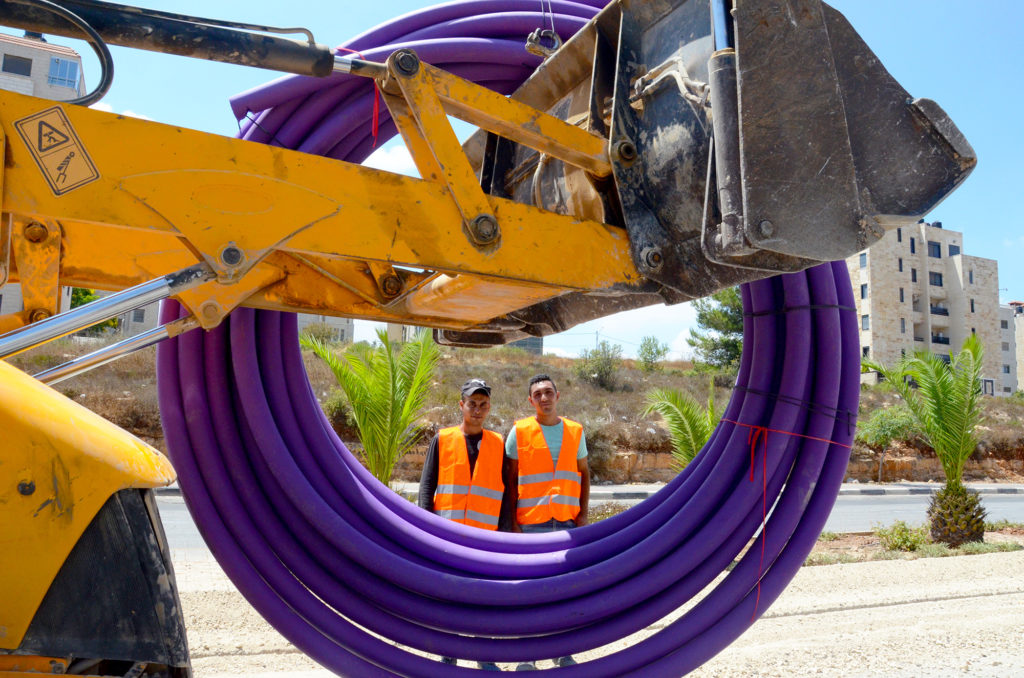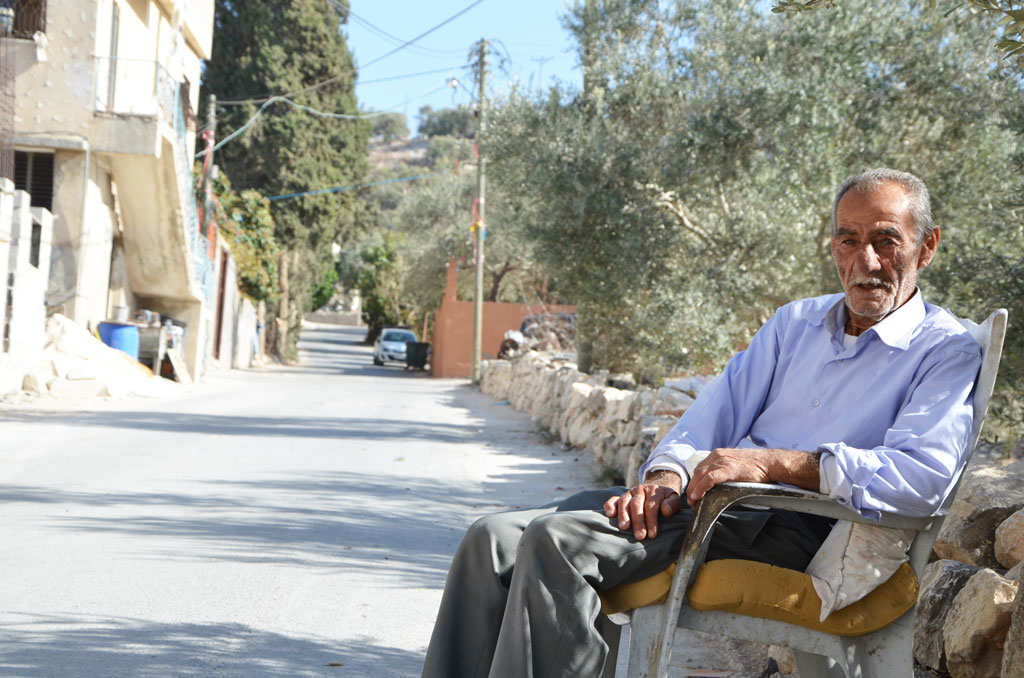Oct, 2010
During an exceptionally hot summer in Halhoul, West Bank, Etaf Milhem worried constantly about the availability of water in her house and her planted fields.
The town of Halhoul, with 28,000 residents, is located north of Hebron in the West Bank. Economic constraints and frequent closures often prevent Halhoul families leaving the town in search of work. Today, Etaf has finally found some peace of mind, temporary as it may be, with a newly constructed cistern.
Anera completed the construction of six desperately needed water cisterns in August 2010, to provide water in remote agricultural areas of the Halhoul district that municipality services and water network cannot reach.
Anera’s project cost just over $12,000. Each cistern can hold nearly 2,000 gallons (70 cubic meters) of water, seven times what a farmer would usually buy from the water tanker for household and cultivation purposes.
The new reservoirs benefit six farming families, including Etaf’s. With the ability to capture and store more water, farmers are able to expand their plantings and improve their economic situation. Anera’s project created jobs for some 60 people for 147 days. The improved situation could also lead to more job opportunities for others in the community, who rely mostly on agriculture as their main source of income.
But, the water situation in and around Hebron is tragic. Much of the land has been annexed by nearby settlements and underground water has been increasingly contaminated by their runoff sewage, leaving Palestinian farmers with less water for their homes and farms.
“I saw people cry over the scarcity of water with my own eyes,” Etaf says.
Water cisterns give Palestinians chance to earn a living
Hussein Hmeidan, head of the Poultry Breeders and Livestock Cooperation, explains that water reaches the citizens of Halhoul once every 15 days. The inhabitants of the Halhoul district, he says, receive 660,000 gallons (2,500 cubic meters) of water a day. The normal amount should be closer to 1,188,000 gallons (4,500 cubic meters). In many districts, people are left with no choice but to purchase water from tankers, risking contamination and disease, and straining their already-limited budgets.
“When you purchase a big water tank, which usually holds 10 cubic meters [2,600 gallons], you have to sign up and explain why you need it, which requires a lot of time, patience and money,” explains Mr. Hmeidan. “If the water is for cultivation as opposed to domestic use, it’s double the price.”
Mr. Hmeidan continues, “Water is being bought and sold on the black market today like any rare commodity. It’s being sold for double or triple the original price because everyone knows it is essential but scarce and there’s a constant demand. Before the current drought, the tanker sold water for 120 shekels [$33 US], now it has reached 650 [$179 US]!”
Like any mother, Etaf Milhem worries about her six children’s future. But the new cistern has calmed her concerns about their ability to earn a good living. “They will always have the land to fall back on and the new cistern is providing incentive for us all to work harder and take good care of it. Our productivity has increased and it’s reassuring to know we have enough supply of water to last us for a much longer time.”
Etaf’s family is now able to produce enough food for her family and to sell in the market for income. The market where Etaf sells her produce was built by Anera 25 years ago and is still very active. Etaf’s husband has been working as a cleaner at Al-Ahli Hospital for 65 years but will soon have to retire. “My husband’s salary is very little, so we depend on our small piece of land”, says Etaf. “The cisterns have come at the most opportune time.”
Through Anera’s water and sanitation program in Palestine, families and farmers are receiving the water they need to survive and thrive.


